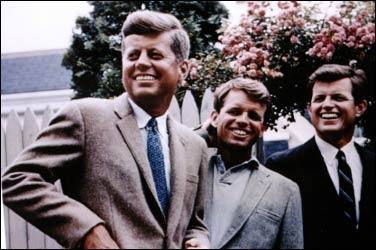 The always-worth-listening-to David Gibson has a fine piece over at Politics Daily on the passing of the Senate's lion.
The always-worth-listening-to David Gibson has a fine piece over at Politics Daily on the passing of the Senate's lion.
It is tempting to view Ted Kennedy's passing as the end of an era, both politically and culturally, but also religiously -- the end of a reform-minded, socially oriented Catholicism that entered the mainstream in the 1960s and brought certain liberal values to the public square while remaining anchored, at times tenuously, to the religious (and ethnic) tradition that nurtured those values.
Certainly more than a few Catholic commentators would see it that way, assuring the Kennedys of their prayers while making it clear that they would shed no tears for the record Kennedy and his clan leave behind.
Yet conservatives shouldn't be too quick to bury the past and proclaim their own orthodoxy as the true heir of the American Catholic future. Surveys of young adult Catholics over recent years have shown that, in many respects, the younger generation resembles Kennedy's approach to faith and politics, with social justice and equality for women and gays as public markers of their religion, and devotion to the sacraments the lodestar of their private devotion.
The most comprehensive surveys of Catholics over the generations have been conducted by a team of sociologists led by Dean Hoge (who died in 2008), James Davidson and William D'Antonio. Starting in 1987, they polled American Catholics every six years, tracking the differences between the generations and changes within each generation over time. They compiled those findings in a 2007 book, "American Catholics Today: New Realities of Their Faith and Their Church." (You can read a summary in this 2005 report in National Catholic Reporter.)
There are obviously some generational differences that challenge the coherence of the Catholicism that formed Edward M. Kennedy and his eight siblings, of whom only Jean Kennedy Smith survives. Younger Catholics do not see religious practice through the lens of obligation, for example, and the institutional church is much less important to them. But that also holds true for Catholics across the generations.
James Martin, SJ







